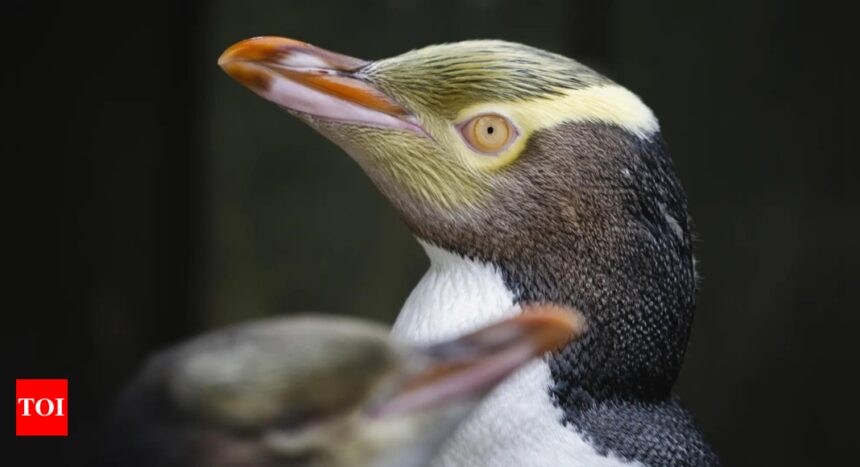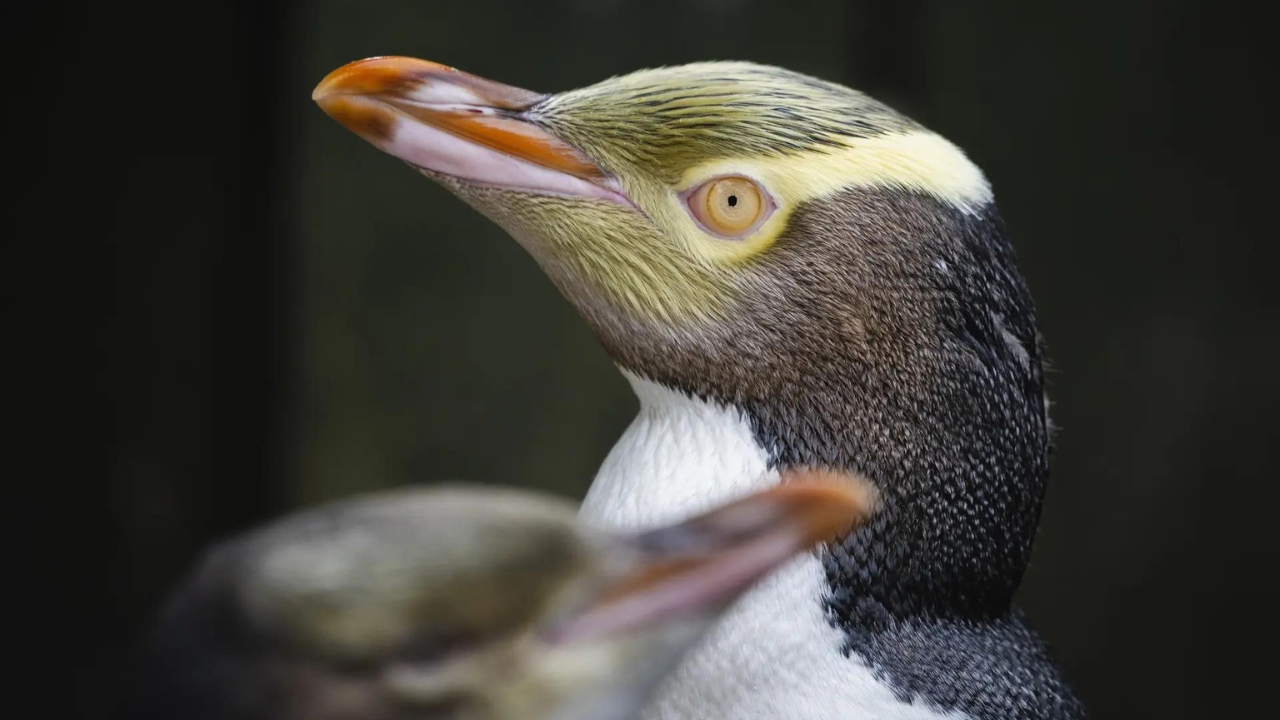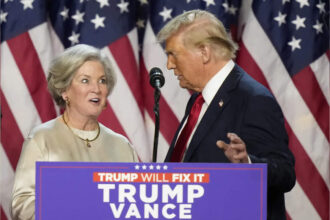The yellow-eyed penguin, or hoiho, won New Zealand’s Bird of the Year award on Monday, bringing hope for the endangered species.
The campaign for the annual poll saw more than 50,000 votes, a drop from last year’s participation, which was driven by British host John Oliver’s campaign for the pūteketeke—a “deeply weird bird” that consumes and vomits its own feathers—securing a decisive victory.
The hoiho, known as “noise shouter” in Māori, is the world’s rarest penguin and is found only on New Zealand’s South and Chatham Islands and some subantarctic islands. Its population has decreased by 78% in the last 15 years. Nicola Toki, chief executive of Forest & Bird, said, “This spotlight couldn’t have come at a better time. This iconic penguin is disappearing from mainland Aotearoa before our eyes.”
Emma Rawson, who campaigned for the fourth-placed ruru, said that New Zealanders have a deep connection with their native birds. “Birds are our heart and soul,” she said. New Zealand has no native land mammals, which adds importance to its bird species, according to Rawson.
Charlie Buchan, campaign manager for the hoiho, emphasized the need for tangible support for conservation and raising awareness. The campaign received endorsements from notable figures, including zoologist Jane Goodall, TV host Phil Keoghan, and two former New Zealand prime ministers.
Various groups, including wildlife organizations, a museum, a brewery, and a rugby team in Dunedin, led the successful campaign for the hoiho.
Emily Bull, spokesperson for the runner-up campaign for the karure, said they felt like the underdog against a strong opponent. The karure, also known as the black robin, has made a significant comeback from just five birds in the 1980s to 250 today.
The competition saw tactics like meme wars, celebrity endorsements, and even tattoos to gain support. While campaigns are competitive, they are described as more community-driven than divisive, according to Bull. “There is a really sweet community. It’s really wholesome,” Bull added.
In previous years, the election faced issues like international interference, prompting Forest & Bird to implement ballot verification measures. However, this year’s campaign was smoother, focusing on raising awareness and support for New Zealand’s native birds.
The campaign for the annual poll saw more than 50,000 votes, a drop from last year’s participation, which was driven by British host John Oliver’s campaign for the pūteketeke—a “deeply weird bird” that consumes and vomits its own feathers—securing a decisive victory.
The hoiho, known as “noise shouter” in Māori, is the world’s rarest penguin and is found only on New Zealand’s South and Chatham Islands and some subantarctic islands. Its population has decreased by 78% in the last 15 years. Nicola Toki, chief executive of Forest & Bird, said, “This spotlight couldn’t have come at a better time. This iconic penguin is disappearing from mainland Aotearoa before our eyes.”
Emma Rawson, who campaigned for the fourth-placed ruru, said that New Zealanders have a deep connection with their native birds. “Birds are our heart and soul,” she said. New Zealand has no native land mammals, which adds importance to its bird species, according to Rawson.
Charlie Buchan, campaign manager for the hoiho, emphasized the need for tangible support for conservation and raising awareness. The campaign received endorsements from notable figures, including zoologist Jane Goodall, TV host Phil Keoghan, and two former New Zealand prime ministers.
Various groups, including wildlife organizations, a museum, a brewery, and a rugby team in Dunedin, led the successful campaign for the hoiho.
Emily Bull, spokesperson for the runner-up campaign for the karure, said they felt like the underdog against a strong opponent. The karure, also known as the black robin, has made a significant comeback from just five birds in the 1980s to 250 today.
The competition saw tactics like meme wars, celebrity endorsements, and even tattoos to gain support. While campaigns are competitive, they are described as more community-driven than divisive, according to Bull. “There is a really sweet community. It’s really wholesome,” Bull added.
In previous years, the election faced issues like international interference, prompting Forest & Bird to implement ballot verification measures. However, this year’s campaign was smoother, focusing on raising awareness and support for New Zealand’s native birds.
Source : Times of India









